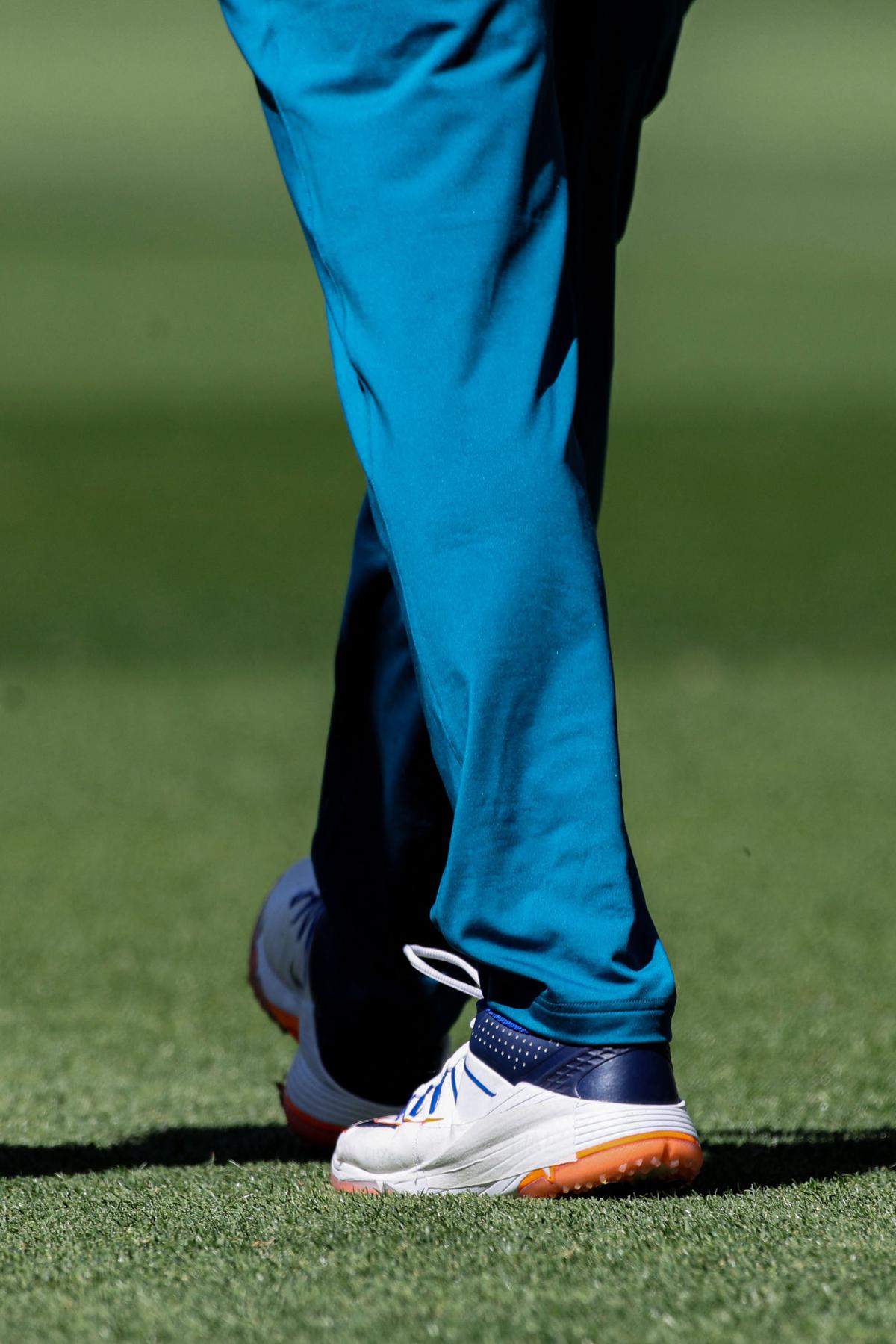
Australia’s Usman Khawaja is seen before the first day of the first Test cricket match between Australia and Pakistan at Optus Stadium in Perth on December 14, 2023.
| Photo Credit: AFP
Australia batter Usman Khawaja wasn’t allowed to wear shoes branded with a “all lives are equal” humanitarian message, so he wore a black arm band instead Thursday, December 14, 2023, on Day 1 of the series-opening cricket test against Pakistan.
The International Cricket Council intervened on Wednesday after Khawaja indicated he planned to wear shoes during the match that featured messages to highlight the loss of innocent lives in the Israel-Hamas war.

Australia’s Usman Khawaja is seen on the field with a tape strapped on his left shoe to hide a message of support for people in Gaza, having been told it is against ICC rules, before the first day of the first Test cricket match between Australia and Pakistan at Optus Stadium in Perth on December 14, 2023.
| Photo Credit:
AFP
The ICC’s policies for international cricket prohibit displays of political or religious statements on team uniforms or equipment.
Khawaja said he’d abide by the ruling to avoid individual or team sanctions, but would challenge the ICC’s stance.
“Freedom is a human right, and all rights are equal,” Khawaja said in a social media post. “I will never stop believing that.” Australia batted first in the five-day game, and Khawaja and fellow Australian opener David Warner strode to the pitch along with the Pakistan fielders.
Khawaja, who was born in Pakistan and is the first Muslim to play test cricket for Australia, wore the black armband to show solidary with people suffering in Gaza.
In pre-game TV interviews, he said there’d been precedents where other cricketers had been allowed to show support for other causes.
“I find it a little bit disappointing they came down hard on me and they don’t always come down hard on everyone,” he said.
Cummins backs Khawaja
The 36-year-old Khawaja had some high-level support, including from Australia captain Pat Cummins and even up to the nation’s federal treasurer, Jim Chalmers.
“What was on the shoes — all lives are equal — I support that,” Cummins said. “That’s not very divisive. I don’t think anyone can really have too many complaints about that.”
Chalmers told the Australian Broadcasting Corp. radio that the ICC should allow Khawaja to wear the shoes.
“I don’t think it’s an especially controversial statement and I find it unusual frankly that people want to dispute that,” he said. “The lives on one side of a conflict are not worth anymore or any less than the lives on the other side of a conflict.”